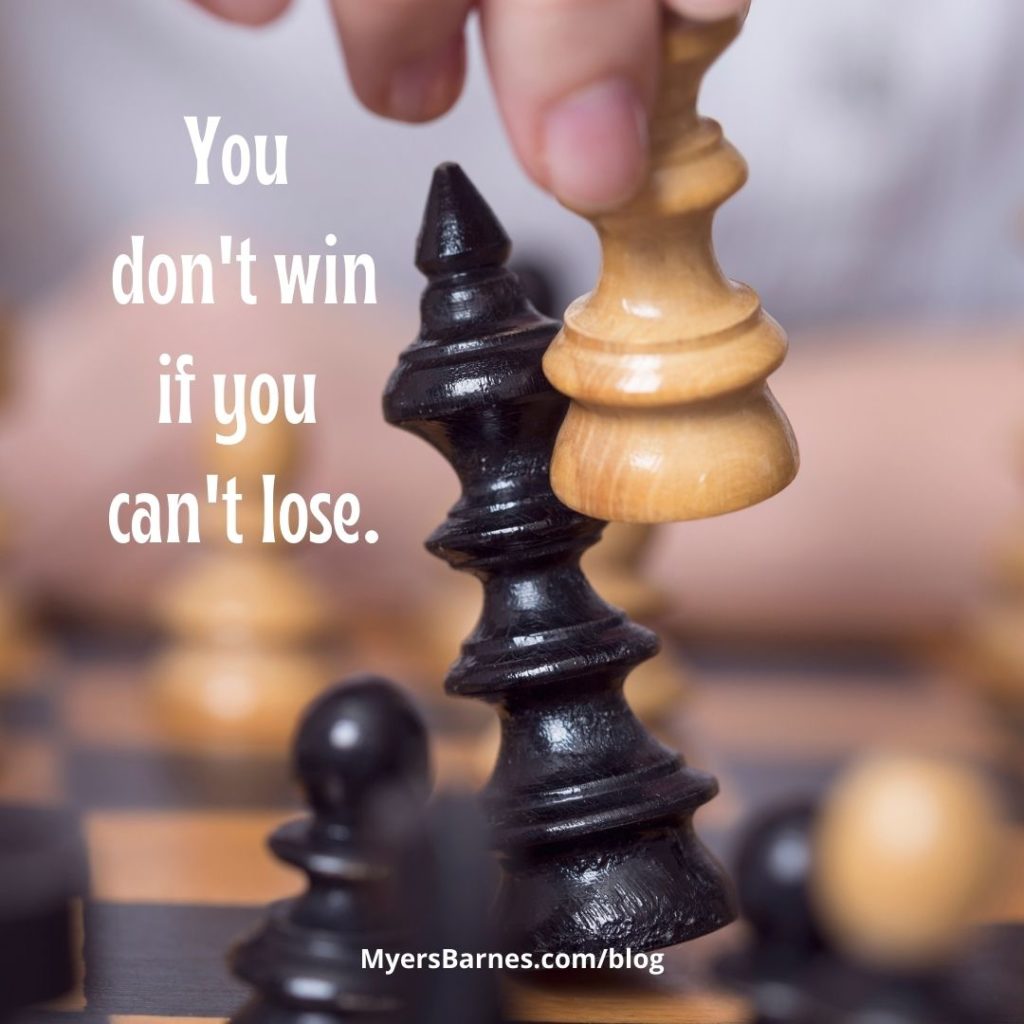 What is winning? It’s gaining something as a result of competing. Competing can be moderate to grueling. And the level of satisfaction that comes with a victory is often proportional to the toughness of the contest. But, no matter what you’re facing, you don’t win if you also can’t lose.
What is winning? It’s gaining something as a result of competing. Competing can be moderate to grueling. And the level of satisfaction that comes with a victory is often proportional to the toughness of the contest. But, no matter what you’re facing, you don’t win if you also can’t lose.
Does a politician who runs uncontested host a big victory party? It’s anticlimactic.
If I handed you a football on the five-yard line and all the players stood halfway down the field, would you feel the sense of victory after you simply walked over the goal line? Would it feel like a touchdown?
No. When you have outmaneuvered a 320-pound lineman whose only job is to take you down as soon as you hold the football, that’s when you feel victory. That’s an achievement.
If there is no chance of losing, is there any triumph to be had? A “sure thing” is not a win. Conversely, if you have no chance of winning—like most carnival games—you can’t truly lose. It’s a predetermined outcome, not a test of your skills.
Winning and losing have a yin and yang relationship. Black and white. Good and evil. Positive and negative. How can you measure one without the contrast of the other?
“The thrill of victory, the agony of defeat” was the long-standing slogan for ABC’s “Wide World of Sports”. In every competition, both of these emotions emerge. Opposing sides, opposing emotions.
When longshot Rich Strike won the Kentucky Derby, defying 80-1 odds against him, the victory was sweeter because the achievement was massive. For favorites Epicenter, Zandon, and Messier, the loss was crushing because the expectations were so high.
Risk and reward
Winning and losing involve drama that comes with taking a risk, letting go of fear, and pushing the limits of your comfort zone. You have to make decisions with no guarantee of the outcome. If every new home sale were a “gimme”, you would lose interest. Sales people, by nature, thrive on competition. They want to “win”—even if they are only competing against their own standards.
We’ve been enjoying a housing market where the winning and losing only happens to the buyers. Homes get multiple offers. There is only one that is accepted. The others lost. Some buyers keep trying. Others give up, putting their dreams on hold until the market shifts and they have better odds at “winning”.
There is risk in competition—not just in losing, but in what comes afterward. I applaud those people who lose on occasion, because they have experienced the feeling of not winning, from disappointment to heartbreak. That doesn’t make them losers—unless they crumble under the weight of a failure, or even a string of failures. Those who learn from loss and come back to be stronger, smarter, and better will relish the win because they’ve been on the other side.
A loss is an event, not a person.
You can’t win if there is no chance of losing. A loss is an event, not a person. A loss does not define you. Don’t personalize it. Meaning is what you attach to a person, place, or thing. How will you view it?


